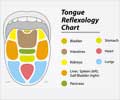Vitamins have been considered to improve general health of people.With health consciousness spreading steadily, the number of people taking vitamin supplements for improving health status has considerably increased.
Vitamins have been considered to improve general health of people.
With health consciousness spreading steadily, the number of people taking vitamin supplements for improving health status has considerably increased. The approach requires caution because the need for beta-carotene supplement would be dependent to a large scale on the smoking history.Beta-carotene is a nutrient found in plants that the body uses to make vitamin A. It's found mainly in deeply colored fruits and vegetables, such as carrots, squash, yams, peaches, apricots, spinach, collard or mustard greens, and broccoli.
Beta carotene supplementation has been found to increase the incidence or rather the risk for development of oral cancer. For those with a history of tobacco use, rates of cancer were 368.3 per 10,000 women who had a high intake of beta-carotene, compared to 174 cases per 10,000 for those with a low intake of beta-carotene.
Conversely, lifetime non-smokers who take beta-carotene supplements have a reduction in cancer incidence. In women who had never smoked, those with the highest intake of beta-carotene enjoyed the lowest risk: 81.7 cases per 10,000, while those with the lowest intake had nearly 182 cases per 10,000 women, according to the study.
The study also looked at the incidence of lung cancer, as well as other tobacco-related cancers, such as colorectal, thyroid, ovarian and cervical cancers. Anyone who has smoked in the past should avoid taking beta-carotene supplements, which may also be found in some multi-vitamins.
Although beta-carotene may act as a carcinogen, there is no evidence that smokers should avoid consuming beta-carotene rich foods such as fruits and vegetables, in which other components, such as vitamin C and E, may counteract a potentially deleterious interaction of beta-carotene with smoking.
Advertisement










